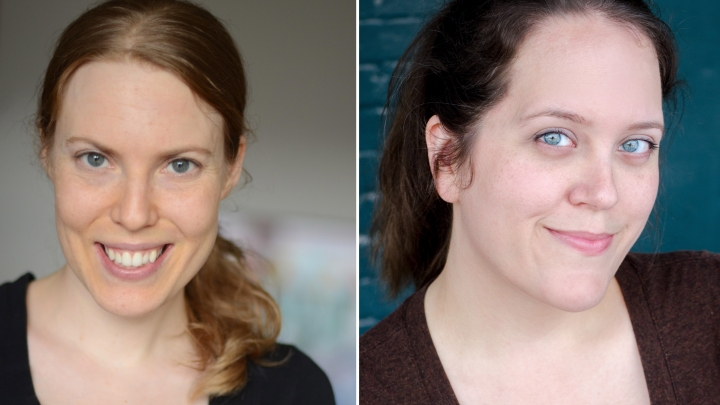When Neukom Institute for Computational Science director Dan Rockmore created a speculative fiction awards program in 2017, he did so with the sense that the world was walking on a tightrope.
“Speculative fiction achieves an emotional uncanny valley in its reader,” Rockmore said at the time. “It feels like it could happen tomorrow, and we might not like the way it looks.”
Speculative fiction—or “spec fic”—is closely related to science fiction. Dystopia and driverless cars feature strongly in the genre. So do global pandemics, climate catastrophes and other societal crises. But with COVID-19 now affecting every facet of life, Rockmore says the uncanny valley became an unnerving reality much sooner than he would have predicted.
“I’m not sure if I read spec fic because I’m waiting for the world to collapse or the other way around,” he says. “But even with all that I’ve read, did I expect a pandemic? No, not at all.”
The Neukom Institute Literary Arts Awards program was established as an open competition to honor and support creative works of speculative fiction. The playwriting award is offered to authors whose work responds to the prompt: “What does it mean to be human in a computerized world?”
In the face of a pandemic that has emptied campus and upset lives across the region and the world, Rockmore knew that the arts would be under pressure. In response, he committed an extra playwriting award for this year’s program.
“I was floored and delighted by the overwhelming number of submissions,” says Rockmore. “In a time when so many artists are struggling, we are glad to be able to support even more playwrights by offering two awards this year.”
The Neukom Institute awarded the 2020 prize for playwriting to Drive, by Deborah Yarchun. In light of the threat to the arts brought on by COVID-19, Neukom decided to award a second-place prize, which went to Override, by Elizabeth Keel.
The first-place prize includes a $5,000 honorarium. Second place comes with a $750 honorarium.
“The amounts may not seem like much, but we’re doing what we can to give recognition and assist play development,” says Rockmore. “We are also sending a signal to the broader world that the arts are important and need to be supported, always.”
In Drive, Yarchun tells the story of truckers who lose their jobs to self-driving vehicles. The play explores fears surrounding the next stage of automation in a country where people are defined by their work.
“An award celebrating work that explores what it means to be a human in a computerized world is so relevant, particularly in these strange, socially-distant times,” says Yarchun. “The resources this honor provides would be helpful anytime but are particularly meaningful now.”
Keel’s Override is a story of innovation and competition wrapped in a romantic comedy. The play reinforces the importance of contact through the body, heart, and mind.
When the play was written, COVID-19 was not known to exist and social distancing was hardly a household word.
“The play’s emphasis on human interaction and touch-based technology resonates even more keenly now than when I first wrote it,” says Keel.
As a playwright confronting the global downturn in theater opportunities, Keel was heartened by the spirit and support offered by Neukom’s additional award. “I feel such an abiding appreciation for the Neukom Institute’s efforts to bring scientists and theatre artists together,” she says. “This prize allows me to move forward in the hope of collaborating in a shared space again soon.”
The addition of a second award is not the only innovation for this year’s program. Instead of live readings as part of Dartmouth’s summertime VoxFest, both plays will have remotely staged readings. The two playwrights will have an opportunity to work remotely with members of Dartmouth’s Department of Theater.
Yarchun’s Drive will also receive a staged reading at Northern Stage in White River Junction, Vt., during the company’s 2020-2021 season.
Speaking about the relevance of speculative fiction when the awards program was first established, Rockmore said the genre often delivers a stark warning to society: “Without care, things could go badly.”
Three years after he said that, Rockmore notes that speculative fiction may often propose half-empty outlooks, but the world can learn from those, too. “The arts are most powerful when they confront us with truths and possibilities,” he says. “Utopian visions aren’t so interesting anyway, but maybe that kind of sentiment says more about me than the arts.”
The Neukom Institute Literary Arts Awards also honors speculative fiction books. Awards are given to established and first-time authors who feature themes relevant to computational work or computing in their writing. The book awards will be announced later this year.
David Hirsch can be reached at david.s.hirsch@dartmouth.edu
